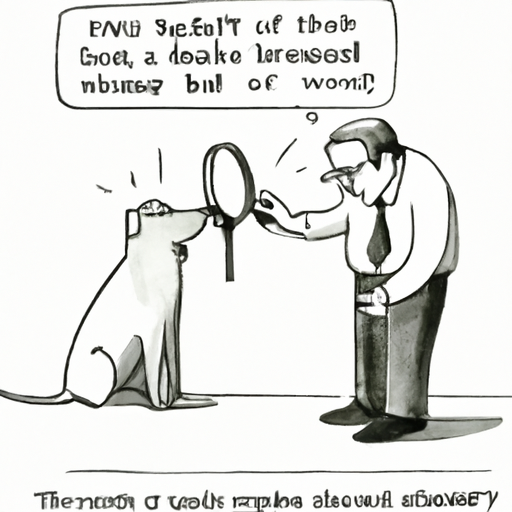Understanding Your Dog’s Ear Infection
Ear infections in dogs are a common occurrence, and they can be a source of great discomfort for your furry friend. These infections are typically caused by bacteria or yeast, but can also result from parasites, allergies, or even hormonal imbalances.
The most common symptoms of a dog’s ear infection include:
- Constant scratching or pawing at the ears
- Redness and inflammation
- Unusual odor
- Discharge from the ears
- Shaking of the head or tilting it to one side
Understanding the cause and symptoms of your dog’s ear infection is the first step in providing the help they need.
Identifying the Type of Ear Infection
There are three types of ear infections dogs can suffer from, categorized based on which part of the ear they affect:
- Otitis Externa: This type affects the outer part of the ear canal and is the most common type of ear infection in dogs.
- Otitis Media: This type occurs in the middle ear, often as a result of an untreated otitis externa.
- Otitis Interna: This type is the most serious and affects the inner ear. It can lead to neurological issues if not treated promptly.
| Type of Infection | Affects Part of the Ear | Common Causes |
|---|---|---|
| Otitis Externa | Outer Ear Canal | Bacteria, Yeast, Allergies, Parasites |
| Otitis Media | Middle Ear | Untreated Otitis Externa |
| Otitis Interna | Inner Ear | Untreated Otitis Media |
Treating Your Dog’s Ear Infection at Home
Before embarking on home treatment, it is crucial to seek the advice of a veterinarian. They can provide a proper diagnosis and recommend appropriate treatment options. However, there are steps you can take at home to help alleviate your dog’s discomfort:
- Clean the Ears Regularly: Use a dog-specific ear cleaner to gently cleanse your dog’s ears. This can help remove any debris and reduce inflammation. Remember, never use cotton swabs as they can cause damage.
- Apply Medication: Your vet may prescribe drops or ointments to treat the infection. Ensure to apply these as directed.
- Prevent Scratching: Use an Elizabethan collar or similar device to stop your dog from scratching and causing further damage.
Preventing Future Ear Infections
Prevention is always better than cure. Here are some tips to help prevent future ear infections in your dog:
- Regularly check your dog’s ears for signs of infection.
- Clean your dog’s ears weekly with a vet-approved cleaner.
- Keep your dog’s ears dry, especially after bathing or swimming.
- Maintain a healthy diet to support your dog’s immune system.
- Regularly groom your dog, especially if they have long or floppy ears.
Seeking Professional Help
While home remedies can alleviate some symptoms, it’s crucial to seek professional help to treat your dog’s ear infection properly. A vet can perform a thorough examination, identify the cause of the infection, and provide an effective treatment plan. Remember, untreated ear infections can lead to serious complications, including hearing loss.
Frequently Asked Questions
Q: How long does a dog’s ear infection last?
A: With proper treatment, most ear infections clear up within 1-2 weeks. However, chronic infections may take longer to resolve.
Q: Can a dog’s ear infection spread to humans or other pets?
A: Some causes of ear infections, like mites, can spread to other pets but not to humans. Bacterial or yeast infections, on the other hand, are not typically contagious.
Q: Can ear infections cause permanent damage?
A: Yes, if left untreated, ear infections can lead to permanent damage, including hearing loss or facial paralysis. Therefore, it’s crucial to seek veterinary care at the first sign of an infection.
Q: Can a change in diet help prevent ear infections?
A: Yes, a healthy diet can boost your dog’s immune system and help prevent infections. Some dogs may also be allergic to certain foods, which could contribute to ear infections. Consult your vet for advice on the best diet for your dog.
Remember, as a caregiver, it’s crucial to pay attention to any changes in your pet’s behavior. Early detection and treatment of ear infections can prevent unnecessary discomfort and serious complications. Your furry friend depends on you for their well-being.



